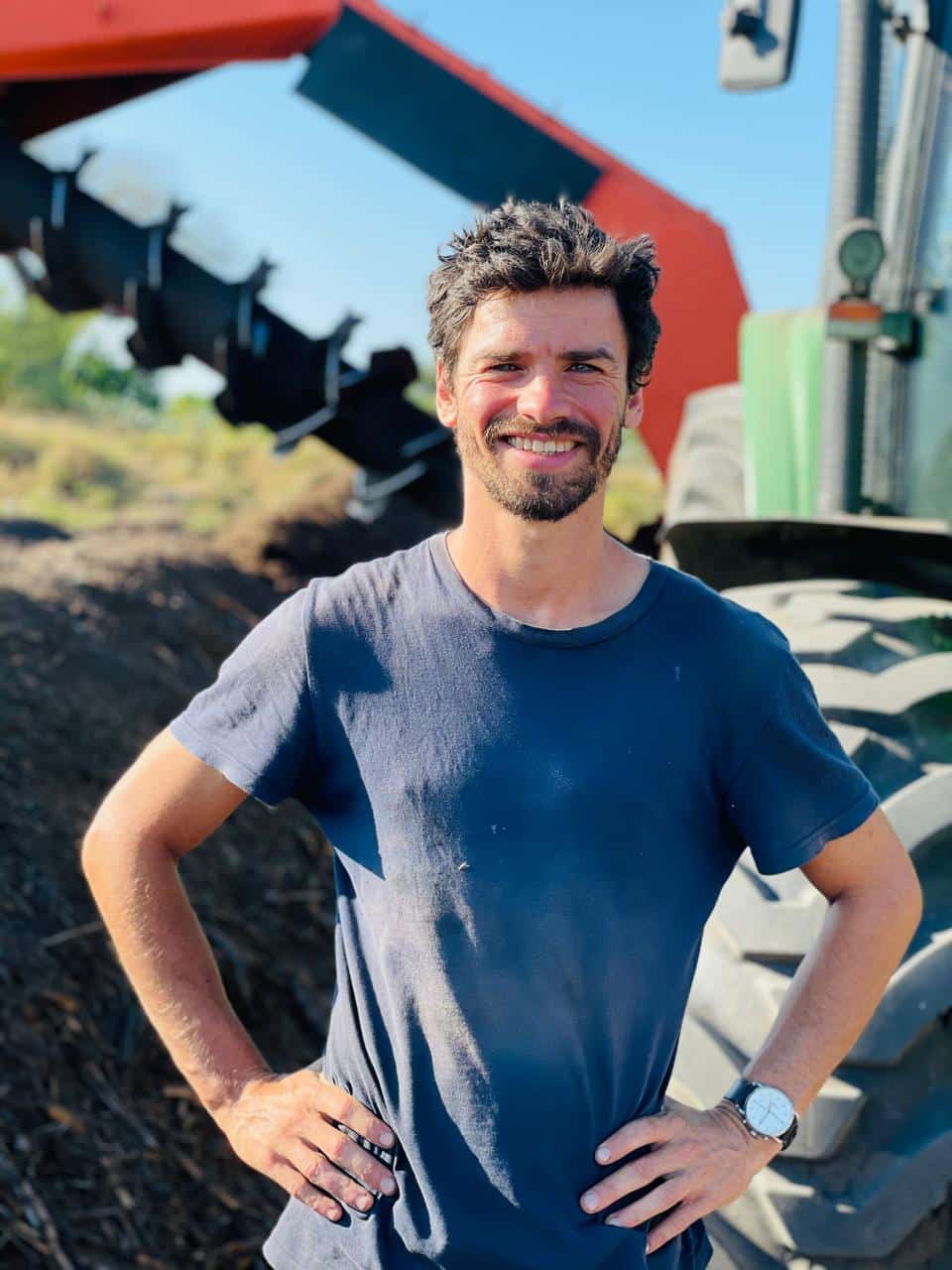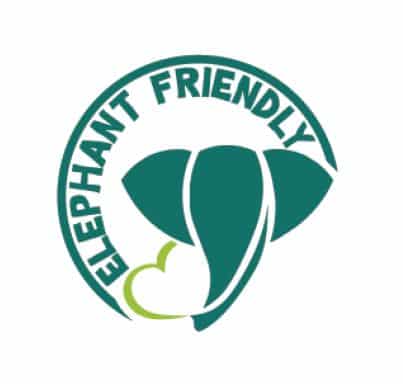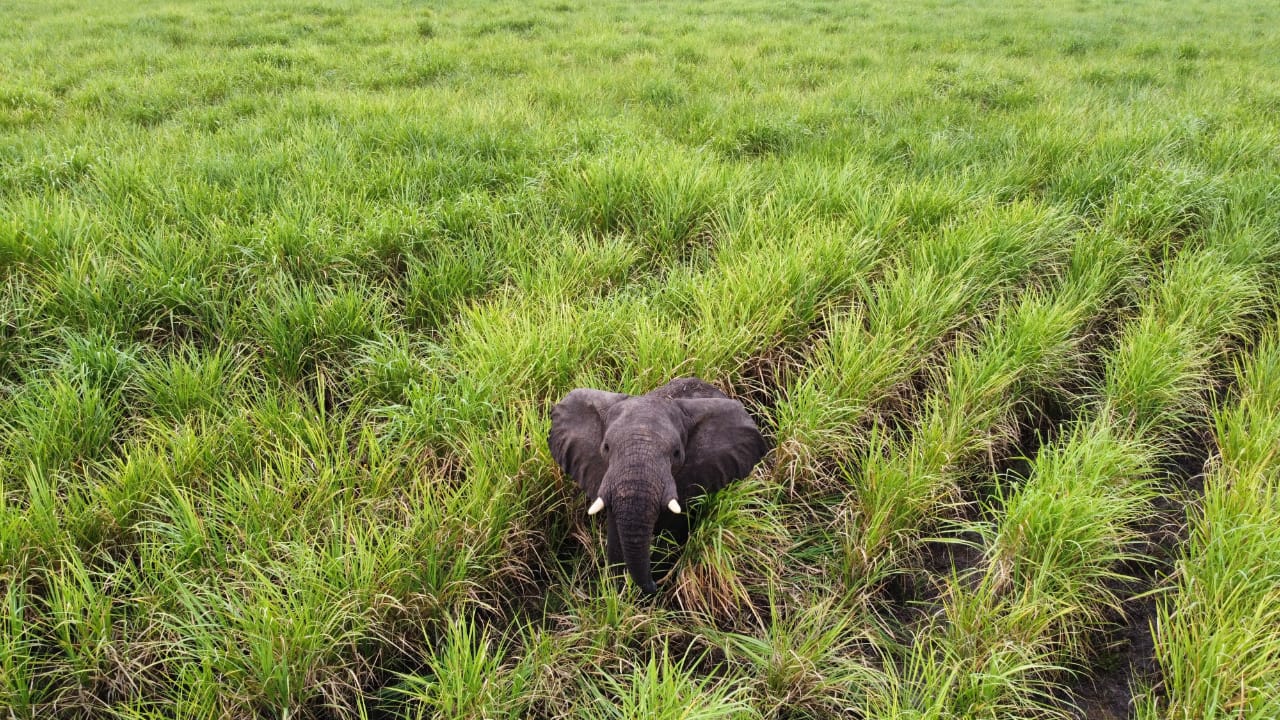EcoFarm operates an innovative sugar mill in northern Mozambique and has its own sugar cane fields. As of 2024, EcoFarm is making use of the benefits of vermicompost to boost the fertility and disease-resistance of the soil and the sugar cane plants.
Jun 26, 2024
EcoFarm’s sugar cane cultivation meets high ecological standards. To protect biodiversity, EcoFarm leaves more than half its growing area untouched. In addition, EcoFarm mainly uses fertiliser from its own organic cycle and, since 2024, has also been producing its own vermicompost. To make the worm compost, EcoFarm adds other crops to the sugar cane press cakes, and manure from the farm’s own grass-fed cattle, and all this is composted with the help of African Night Crawler worms.

“By building a vermicompost unit, our family-run company is creating more job opportunities and teaching valuable skills that can be used in the region.”
Lloyd Bodilly, Compost Manager at EcoFarm
Interview
In this interview, Compost Manager Lloyd Bodilly tells us about the benefits of vermicompost, which he has introduced at EcoFarm in 2024.
Lloyd, what are the main benefits of vermicompost?
Vermicompost is a nutrient-rich fertiliser and a soil improver which noticeably improves plant growth and the sugar cane yield. At the same time, it suppresses the worst pests and diseases. One of the main objectives here at EcoFarm is to improve the microbiology of the soil.
Can you explain that, please?
Fungi play a key role in the process, because they make an important contribution to healthier plants and soils. The worms act like mini-bioreactors which consume the compost and generate far richer soil.
What kind of worms are you using?
We’re using African Night Crawlers (Eudrilus eugeniae), a true earthworm which already lives in the soil here at EcoFarm. This species of worm can consume no less than 150% of its own body weight every day and produces humus that is rich in microorganisms. We use a vibrating screen to separate the worm humus, cocoons and worms, so that we can keep moving the worms into new compost.
How do you use the worm humus?
At the moment, we’re using it to produce organically rich compost tea which we apply both through our irrigation system and in liquid manure after the harvest. We hope that, as the worm population grows, eventually we’ll be able to spread 10-20% of the compost on the fields in the form of worm humus. With this project, we are creating job opportunities and teaching useful skills that will benefit the local region.
Thank you very much, Lloyd!
Organic sugar cane project impacts the whole region
With over 800 employees and 900 associated smallholder farmers, EcoFarm makes a major contribution to improving the poor infrastructure of the Chemba district of Mozambique. The sugar mill supports its associated smallholders with infrastructure, training and help with harvesting, and is offering this fertile region on the Zambezi river a long-term future. In addition to the smallholders and employees, a further 3,800 people benefit indirectly from improved living conditions.
Organic sugar cane with the “Elephant Friendly” label
Since 2023, EcoFarm’s sugar has carried the “Elephant Friendly” label. In the past, the sugar cane fields were repeatedly raided by elephants, who destroyed around a fifth of the entire harvest, so in 2023 the sugar mill set up several beehives. These act as a natural deterrent against the greedy giants without causing them any harm.



Organic raw cane sugar from Mozambique
PRONATEC has been EcoFarm’s main partner since 2020 and has quickly opened up the European market for organic cane sugar from Mozambique. We contribute our expertise profitably and on an equal footing through long-term trade agreements and support with the certification process. PRONATEC currently offers EcoFarm’s SYRAMENA® Special Light organic cane sugar.
You can find more information about EcoFarm in our latest partner profile.


